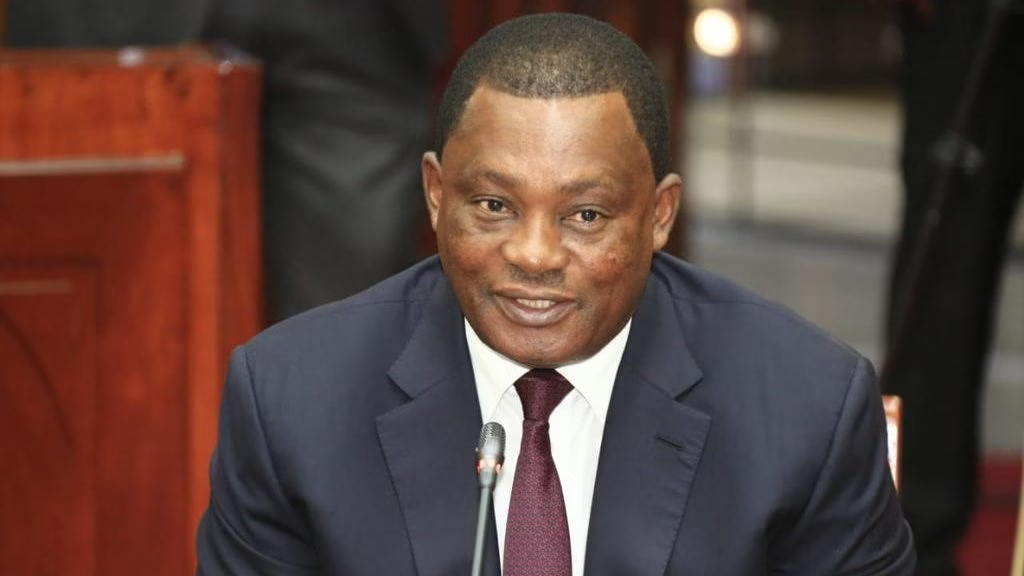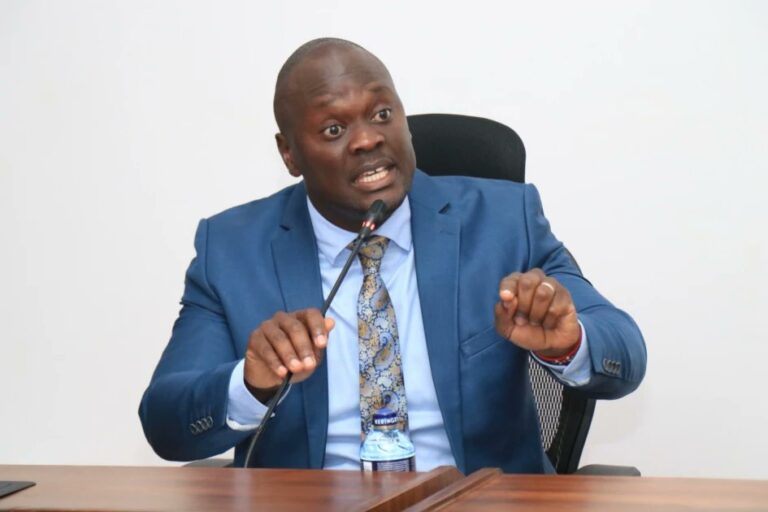
Former National Assembly Speaker Justin Muturi has been reinstated as the leader of the Democratic Party of Kenya following a decisive court ruling that declared his ousting by a faction of the party’s leadership unconstitutional.
The High Court, in its judgment delivered on Monday, ruled that Muturi’s removal did not follow due process as outlined in the party’s constitution. The verdict ends months of internal turmoil that had engulfed the once-dormant party since his controversial suspension in late 2024.
Muturi had moved to court after the party’s National Executive Committee (NEC) ousted him, citing accusations of unilateral decision-making and aligning the party with the ruling Kenya Kwanza coalition without proper consultation.
In a strongly worded judgment, Justice Wilfred Ouma emphasized that the party had failed to observe its own rules. “No person should be condemned without a fair hearing. The actions of the NEC were arbitrary and lacked legal standing,” said Justice Ouma.
The court ordered Muturi’s immediate reinstatement and directed the party to cover his legal costs. The ruling is being viewed by analysts as a reaffirmation of internal democracy in Kenyan political parties.
Speaking after the ruling, Muturi struck a reconciliatory tone. “This is not a personal victory. It’s a win for justice, party unity, and democracy. My focus now is to bring all members back together and prepare for the future,” he told journalists outside the court.
Muturi, who previously served as Speaker of the National Assembly from 2013 to 2022, joined the Democratic Party in early 2022 with ambitions of reviving the political vehicle that once propelled former President Mwai Kibaki to power.
His removal last year raised eyebrows, with critics accusing the NEC of engineering a political coup driven by regional and personal interests.
The Democratic Party, founded in 1991, has largely remained on the periphery of national politics in recent years. Muturi’s entry was seen as a chance to inject new energy into the outfit, but internal strife has hindered progress.
Sources within the party say that efforts are now underway to hold a national delegates conference in July, where reforms and strategic realignments will be discussed.
“We are not where we want to be, but we now have a chance to rebuild,” said Mwangi Kinyua, a senior party official who supported Muturi’s return. “The court’s decision gives us a new beginning.”
The reinstatement comes at a time when political parties in Kenya are preparing early for the 2027 general elections. Muturi’s leadership could influence emerging coalitions and negotiations, particularly as small parties are increasingly being courted for their regional influence.
Political analysts say this ruling might embolden other politicians caught in similar internal disputes. “It sets a precedent that party constitutions matter,” said Professor Martha Ogola, a political science lecturer at the University of Nairobi. “The days of boardroom power games may be coming to an end.”
With his position now secured, Muturi has a tough job ahead rebuilding a fractured party, winning back trust, and positioning the Democratic Party as a serious player in the national arena.
In a political landscape where loyalty often trumps legality, Muturi’s return may signal a new chapter not just for his party, but for Kenya’s maturing democracy.
